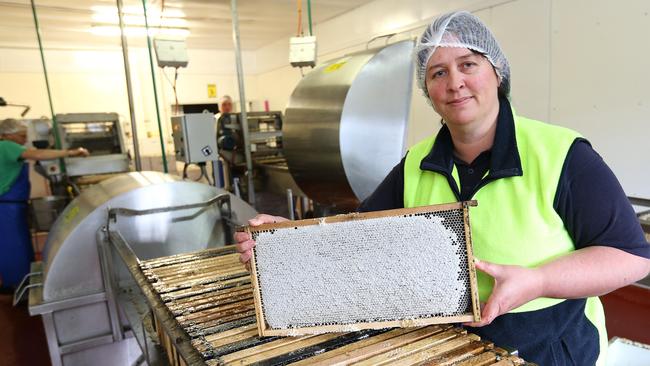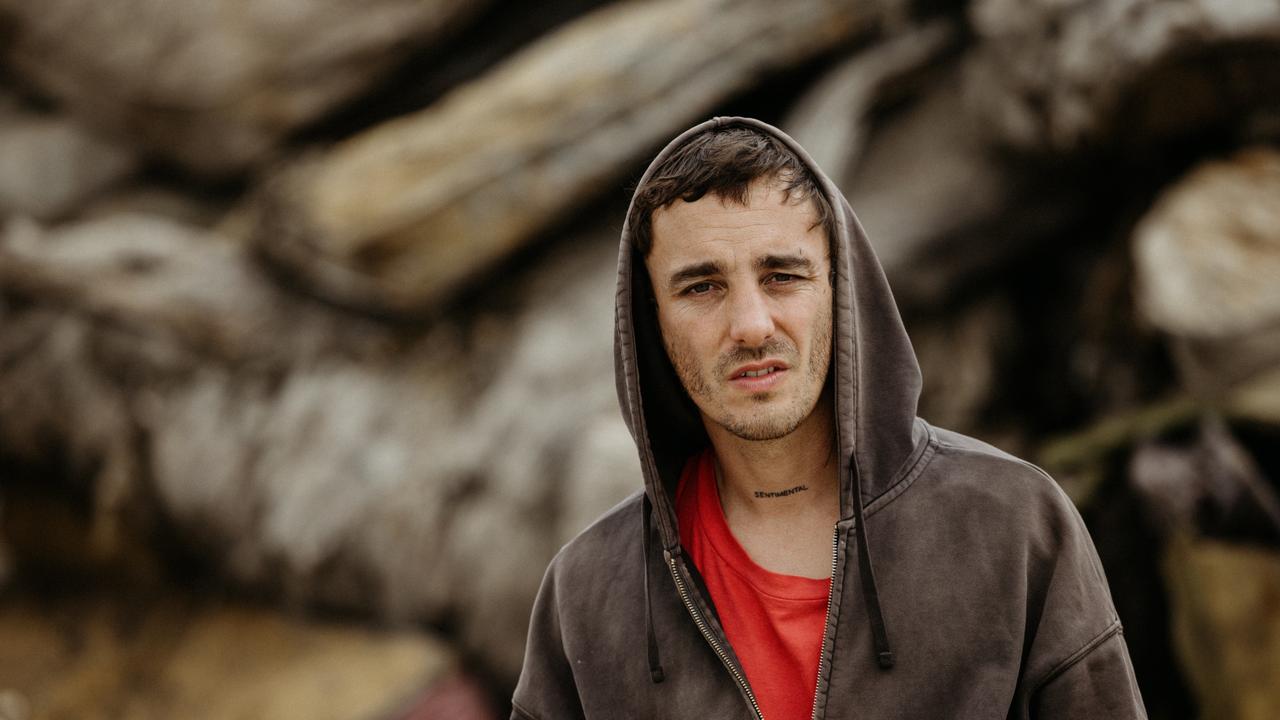Tasmanian beekeepers suffer setbacks as fires rage in the forest
TASMANIAN beekeepers are being hard-hit by the bushfires still raging in areas of the state, with one producer’s harvest down 80 per cent.

Lifestyle
Don't miss out on the headlines from Lifestyle. Followed categories will be added to My News.
ROBBIE and Nicola Charles have been living in crisis for a month.
Low-flying helicopters, evacuations and worried customers are a constant reminder of the peril surrounding the owners of Blue Hills Honey.
For most Tasmanians, the 2016 bushfires have been too remote to hit home.
But for the award-winning beekeepers the fires have hit right where it hurts.
“When the fire started we were just about to hit harvest. The roads were shut, so we couldn’t actually move in or service the bees for a period of time,” Ms Charles said yesterday. “So we are 80 per cent down on harvest.
“We only have that one time a year where we get that income.”
Blues Hill Honey is in Mawbanna in the state’s North-West. On its doorstep is a monster inferno that has burned more than 63,000ha.
Three weeks ago, the fire came within 200m of the business as it burned through plantation forest.
Staff were forced to evacuate when strong winds drove the blaze to within metres of a worker’s cottage down the road.
Since the fire broke out from lightning strikes, the owners and their 17 staff have been on high alert.
“As far as being out the woods, there’s always the risk from embers if we get the wrong wind. There are still active hotspots out here,” Ms Charles said.
“We have bee boxes stored. They’re highly flammable because of the natural beeswax. So we’re on alert.”
Early on there seemed to be a disconnect between the reality of the fires and how they were being viewed.
“Because there was no immediate threat to homes there seemed to be this feeling, ‘it’s not that serious it’s just part of nature let it burn’. But it’s burnt 18 per cent of Circular Head,” she said. “It’s a big slather of working forest, a big slather of the natural resource, for tourism and obviously for honey production.
“How serious that will be I don’t think we’ll know for another year or two.”
Most of their business is in leatherwood honey, unique to Tasmania, with a large amount of it exported.
They have a enough honey in stock for customers, but with the fire debilitating the harvest for a number of beekeepers, the price of leatherwood honey is expected to rise.
During the next few days Blue Hills will examine the impact on their leatherwood trees. Ms Charles is hoping the moisture keeps them safe because leatherwood does not regenerate once burnt.
Until then, their fingers are crossed.


